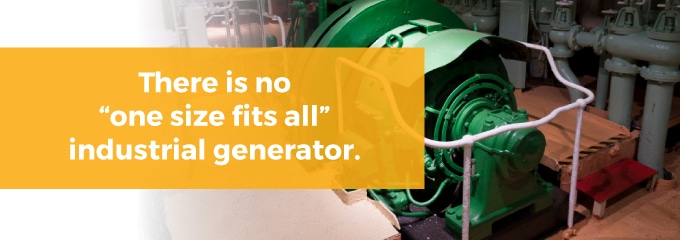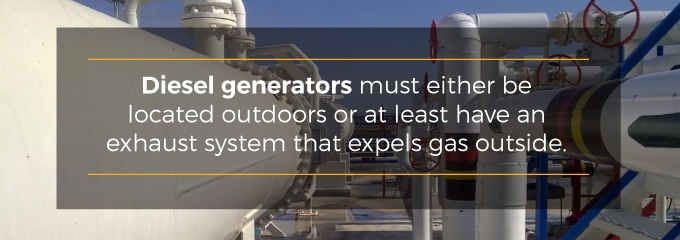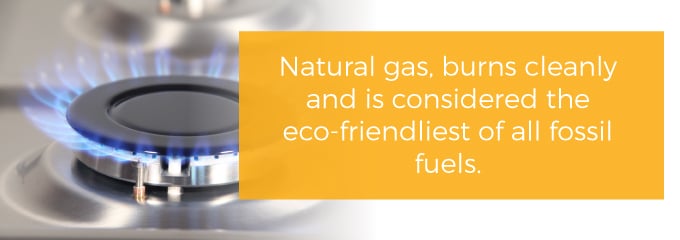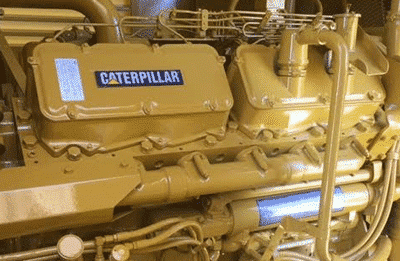
Even short interruptions in power from your utility company can result in costly work stoppages. Some businesses, for instance, rely on a constant supply of electricity to heat or refrigerate their products and can lose entire inventories if they experience a temporary power loss. Others have a responsibility to those who rely on their services, and even a temporary disruption is unacceptable.
Utility power outages are inevitable, but if you have a backup generator, it can supply electricity to the essential functions of your business until your power comes back online. Modern natural gas and diesel generators can be set to switch on when there’s an interruption in electricity from the utility company and turn back off when power is restored for a safe, seamless transition.
commercial Generators for Businesses

Most business managers and proprietors recognize the value of an emergency backup generator, but here are some of the most common reasons that companies opt for diesel and natural gas generators:
- Their business is in an industry that’s required by federal, state or local law to maintain a backup power source. Examples of this would include police and fire stations, hospitals and nursing homes.
- The business operates in an area prone to power interruptions due to severe weather — hurricanes, blizzards, flooding, etc. — or an aging utility grid.
- The company relies upon wind turbines or solar panels as its primary power source and requires supplemental power during periodic slowdowns in energy production.
- Management has determined that the cost of a backup generator is outweighed by the cost of an operation stoppage.
- In some industries, the inventory or production processes require heat or refrigeration to keep their product or raw materials from being ruined. For instance, if a dairy can’t keep its milk refrigerated, it might have several days of product destroyed by an outage. Certain types of livestock also require electric power to maintain safe environments. Aquatic systems use electric aerators to maintain fish stocks as well, meaning a power outage can kill the sea life. Florists, indoor nurseries and hydroponics labs face similar dilemmas.
- Businesses that cater to the public may opt to have a backup generator to ensure comfort and to prevent disruptions of service. Most restauranteurs, for example, would prefer to allow their customers to finish their meals during an unexpected power outage. Movie theaters would also prefer not to refund hundreds of tickets if the power goes out during several simultaneous screenings.
If you own or manage a business that requires an industrial-scale power generator, you may have wondered whether a diesel vs. a natural gas generator is the most beneficial for your operation. From the standpoint of the end product — the electricity produced — there’s little difference between a gas generator and diesel generator, but the cost of maintenance, fuel expenses and other factors need to be considered to make the right choice for your business operation.
As buyers and sellers of high-quality industrial diesel and natural gas generators, we’ve explored the advantages and disadvantages of diesel generators as well as the pros and cons of natural gas generators.
Diesel and Natural Gas
Natural gas usually refers to the methane gas that’s drilled from the ground via gas wells and oil wells. According to the U.S. Energy Information Association, natural gas is made up mostly of methane, but there may also be traces of nonhydrocarbon gases and hydrocarbon liquids. Natural gas is located far below the surface of the earth.

Natural gas is produced in the same way as oil and is often drilled and separated from oil. Because it’s rarely pure when it comes up from the well, natural gas must be filtered to remove contaminants, such as water, oil and dirt.
It then goes through a multi-stage process to ensure it meets the U.S. standards and can enter the pipeline network or “grid.” Natural gas is a clean and inexpensive fuel source, which is why it’s a popular fuel for industrial generators. If your business already utilizes natural gas, you can connect your natural gas generator directly to the grid, which is both an advantage and a drawback. If not, many natural gas generator models have liquid propane tanks that can be supplied — usually by tanker truck — from local services.

Diesel fuel, on the other hand, is a petroleum product that’s refined from what the U.S. Energy Information Association refers to as No. 2 distillate. The distillation process used to create diesel involves evaporating crude oil and separating it into its different grades.
These grades go from 1 to 5 according to the weight of the petroleum product, with 1 being the lightest and 5 the heaviest. Like gasoline, diesel comes in a liquid form. Unlike natural gas, there are no diesel supply lines for businesses to connect to, so diesel generators must be fueled from a local tank. This can be an advantage over natural gas. Like electric power grids, natural gas grids can face interruptions. However, because your diesel is stored locally, you aren’t reliant on a remote supply line. Fortunately, diesel is readily available, and diesel delivery services are common in most areas.
How Does a Diesel Generator Work?

Most people understand that a diesel power generator converts diesel fuel into electricity, but they don’t understand how the process works. Diesel generators have a motor in them that’s like an automobile engine. In a diesel generator, air enters a cylinder, and a piston compresses it to a small fraction of its original volume. This compression process causes the air to heat without the introduction of an independent heat source. A diesel mist enters the cylinder with the hot air and releases its energy in the form of a minute controlled explosion.
Unlike a gasoline-powered car engine, however, no spark is required. The diesel engine turns a shaft that generates electrical power by rotating attached magnets, which produce an electric current. The diesel engines in generators are simpler than gasoline power engines, which is why it’s such a popular fuel source for generators. Diesel exhaust, however, is toxic and carcinogenic, so the exhaust must be vented outside.
How Does a Natural Gas Generator Work?
While different in construction, the principle of converting a fossil fuel into electricity is similar in both natural gas and diesel generators. Unlike diesel generators, however, natural gas generators do use a spark to ignite the air and gas mixture, releasing the energy in the methane or propane gas fuel.
In natural gas generators, air and natural gas fuel are mixed in a cylinder. A piston compresses the fuel-air mixture and a spark plug fires, igniting it and causing it to expand. This turns the crankshaft that’s attached to the piston. The crankshaft’s turning is what gives the generator’s rotor its spin, which, again via rotating magnets, produces electric current. While natural gas is much cleaner than diesel, there are other safety concerns with natural gas generators, which we will discuss in other sections.
Compare Diesel and Gas Generators

There is no “one size fits all” industrial generator. What works best for one type of operation may not be a good fit for another. We’ve examined the differences between natural gas and diesel generators in several categories.
Before deciding which type of generator your business should purchase, you should contact an industry professional and discuss your business’s emergency generator requirements. You’ll want to consider the following:
Initial Cost
Overall, diesel generators are generally less expensive to purchase than natural gas generators. This can be a significant factor for a new business that’s trying to minimize initial expenditure outlays or an existing business that’s replacing an emergency generator. In either case, there is an up-front investment, but the price difference may be mitigated over time due to the natural gas generator’s higher efficiency.
Fuel Costs
The most significant ongoing expenses a business needs to consider when comparing natural gas vs. diesel generators is the ongoing cost of fuel. Buying a cheaper generator only makes sense if the cost of running it doesn’t absorb the savings as fuel is purchased and converted to electricity. While natural gas and diesel are both energy commodities, their pricing moves somewhat independently of one another.
Diesel prices are largely determined by the price of oil, and like gasoline, it’s sold in gallons. Natural gas, on the other hand, is priced in cubic feet. It may increase when energy prices are on the rise, but it’s not pegged to oil production and demand the way diesel is. Although propane is in the natural gas family, it comes in liquid form and is also sold in gallons.
But knowing the average price of various fuels is not the only consideration that should go into the ongoing fuel cost of operating a commercial generator. Some other factors include:
- How often the generator is expected to be used. The more you use your generator, the greater your fuel costs will be.
- The electrical output of the generator.
- The energy yield from the fuel used — using current pricing, natural gas delivers more energy per dollar.
- Delivery cost for propane, diesel or other fuel sources in your area.
It’s important to remember that fuel prices don’t remain static. Your company may buy a generator to take advantage of current prices, only to find an increase in demand or a shortfall in diesel or natural gas production has made the product your business uses more expensive. So, while fuel prices are an important consideration, the decision to purchase a generator shouldn’t be based solely upon recent fuel pricing trends.
Repair and Maintenance Costs
Like all machinery, both natural gas and diesel generators will require periodic maintenance, which represents an ongoing expense for your business. As the name indicates, diesel generators utilize a diesel-powered engine to power the electrical generator. They require very little maintenance when compared to most other generators, which makes them an attractive option for businesses that can’t afford to have their back-up generators down for long or frequent periods.

Because of the combustible nature of natural gas, it’s essential to adhere to a periodic maintenance schedule. In addition to ensuring the natural gas generator continues to perform, periodic inspections prevent hazardous gas leaks as well.
Fuel Storage
If your business already relies on natural gas power, you won’t need to store fuel for a natural gas generator. It will be piped directly to the unit, and if there are no interruptions in your utility service, your generator will be ready whenever it’s required.
Because there isn’t a diesel fuel grid, diesel generators require a tank to be attached to the unit. The smaller the tank, the more frequently it must be refueled to ensure continued power. This may force you to store additional diesel reserves on your business’s premises. If you’re located near a gas station that sells diesel, you can purchase fuel there if you run low on reserves before your next delivery is scheduled.
Safety
Diesel is among the least flammable of all fossil fuels. Because of its liquid state and its natural odor, it’s unlikely a diesel leak would go unnoticed. If that occurs, it’s relatively safe to clean up.
By contrast, natural gas is highly combustible, and if concentrated, it will explode if it’s exposed to an ignition source, or even a spark. Additionally, natural gas is toxic if it’s inhaled in significant quantities. For this reason, gas manufacturers add a chemical to the gas mixture to give it the odor of rotten eggs. This serves as a warning to people in the area that there’s a gas leak — in which case, the building should be evacuated and the fire department notified.
Natural gas burns clean, so if the pipeline or generator isn’t compromised, there will be no odor. It’s easy to overstate the dangers of natural gas, so it’s important to point out that natural gas accidents are rare. According to the American Gas Association natural gas is used by “more than 68 million residential customers and more than 5 million commercial enterprises.” In other words, both forms of fuel are safe, but diesel is slightly safer.
Noise
One of the biggest drawbacks to diesel-powered generators is the noise the engine makes. A diesel motor utilizes a crankshaft and pistons to convert the liquid fuel into a fine combustible mist. This machinery is in operation the entire time you’re using the generator.
If you plan on frequent generator runs or your generator needs to operate in an environment where loud noise is impractical — a hospital, library, stables, etc. — you may want to consider the quieter natural gas generator.
Emissions

Diesel engines give off a smoky exhaust that has a strong odor. These emissions are toxic to human beings and animals and can result in fatalities if inhaled in large quantities. For this reason, diesel generators must either be located outdoors or at least have an exhaust system that expels gas outside. This along with the noise, makes diesel a less attractive option for businesses located on smaller properties.
Natural gas does not emit an odor when it’s burning, and it has the least environmental impact of any fossil fuel. It’s a better option if the generator is going to be located indoors or close to your building’s windows.
Durability and Longevity
Because of their simpler mechanical design, diesel generators are among the most durable of any type of power generator, including gasoline generators. For the same reason, diesel-powered units tend to last longer than natural gas generators.
Environmental Impact

There are environmental concerns with the drilling and refinement of all fossil fuels, including natural gas. Natural gas, however, burns cleanly and is considered the eco-friendliest of all fossil fuels. Neither natural gas nor diesel are renewable energy sources, but they provide reliability that can’t be matched by renewable energy sources, like wind and solar.
Other Considerations When Choosing a Generator
Before you make your final decision as to whether to go with natural gas or diesel, here are some other things to consider:
- The cost of fuel delivery – Being connected to the natural gas grid has its advantages. For one, you won’t have to schedule deliveries, which can be costly. However, utilities do have to maintain their pipelines and will often bake the cost of maintenance into their pricing.
- New vs. Used – New generators feature manufacturer’s warranties, but they cost more than pre-owned generators sold on the secondary market. In many cases, businesses can find affordable refurbished second-hand diesel or natural gas generators that work as well as new production units. At Woodstock Power Company, all our used natural gas and diesel generators are inspected and tested before being listed for sale.
- Manufacturer Warranty – Woodstock Power Company buys and sells generators from large manufacturers with reputations for service, reliability and standing by their products. Manufacturers, like Caterpillar®, Generac and Cummins, usually offer extended warranties that aren’t always voided with the transfer of ownership.
Selecting the Right Size Generator for Your Business

The best way to determine the natural gas or diesel generator requirements for your business is by having a certified electrician or engineer determine your usage and comparing it to the output of different sized generators. In some instances, you may be able to get away with purchasing a smaller generator. If you can operate your business with reduced power, you may be able to do more with less while you’re waiting for utility power to be restored.
For instance, you may be able to adjust your thermostat for short periods or power down the lighting system in under-utilized areas of your facility. If you require full power to run your business, however, you will need to purchase a generator or generators that can meet all your energy requirements. Furthermore, if you don’t have a continuous fuel supply, as is the case with diesel generators, you’ll need to make sure you store enough to last for the length of any anticipated delay. In the event of a natural disaster, that could be days or weeks.
Common Spec Terms for Generators
At Woodstock Power Company, we list the specifications for each generator in our inventory on our webpage. The following is a list of the definitions for the terms you’ll see:
- Fuel Type: This indicates whether the generator is fueled by natural gas, diesel or another type of fuel.
- Rating: Measured in kilowatts (kW), the rating measures the electrical output of a generator in one second. 1 kW = 1,000 joules per second.
- Hours: With diesel generators, this is the number of hours a generator can operate at full capacity without refueling. Natural gas generators will run if the grid is providing fuel.
- Voltage: This number represents the electrical pressure the generator produces.
- Amps: Short for amperes, this figure measures the electric current.
- Hertz (Hz): In alternating current (AC), the Hertz count represents the number of cycles per second.
- RPM (Revolutions Per Minute): This measures how many times the electric turbines make a full rotation in one minute.
- Phase: Generators are single-phase or three-phase. A three-phase generator staggers the alternating current to garner higher efficiencies in the operation.
Reputation for Reliability
If you’re a business owner or manager who’s preparing to purchase a commercial generator, it’s important to partner with industry experts who can evaluate your energy needs and match you with the right type of unit. Making large mechanical purchases can be an intimidating experience, even when you understand natural gas advantages and disadvantages and the pros and cons of diesel generators.
Woodstock Power Company of Philadelphia, PA has become a mainstay in the power generator secondary market. We have round the clock support staff for existing and potential customers, and we are happy to field questions about the difference between natural gas and diesel generators. Fill out our contact form today, and let us help you select the right generator option for your business.


